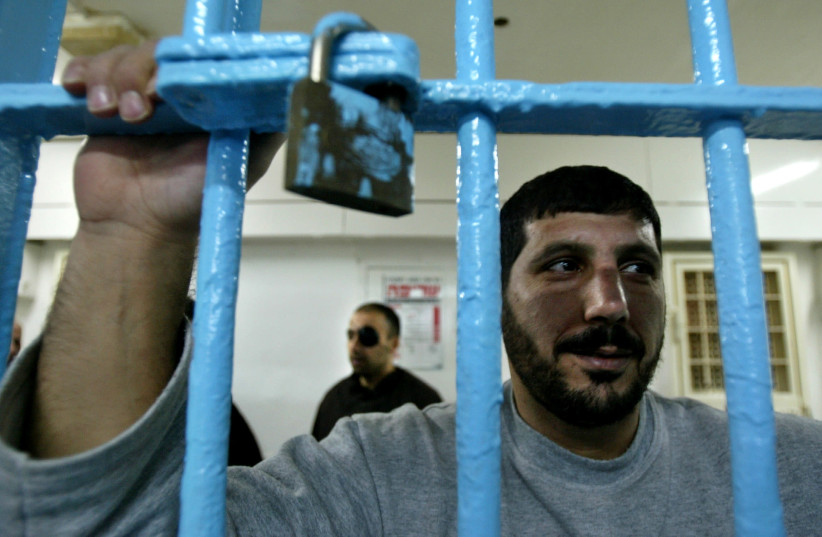A security prisoner being held in Ketziot Prison died about a month ago and publication of his death has only just now been allowed.
The prisoner was 38-year-old Thaer Abu Asab, who was serving a 20-year sentence for attempting to bomb a checkpoint near Nablus in 2005 during the Second Intifada. He was arrested carrying an explosive belt at the checkpoint.
Abu Asab was allegedly beaten to death in his cell by a group of guards; he died of his wounds within hours of the beating.
As part of the investigation, nineteen guards have been detained for questioning on suspicion of assault and causing injury.
A gag order, which only just expired, had been in place since the incident.

Prisoner beaten death
A Palestinian security prisoner who was released last month as part of the hostage deal told Al Jazeera that he had seen the beating that allegedly killed Abu Asab.
"He refused to lower his head and they killed him," he said. Another prisoner claimed that several guards had entered the cell and beaten Abu Asab in the head and then, a few hours later, cleared his cell and took him to a medical clinic.
His family has demanded that Israeli authorities investigate the circumstances surrounding his death.
An autopsy conducted on Abu Asab's body by the L. Greenberg National Institute of Forensic Medicine at Abu Kabir was inconclusive.
"Unfortunately, the Israel Police conducts itself like it was the day before yesterday and has not changed a thing since the outbreak of the war," according to attorney Adi Kider from the Honnu organization, which supports the prison guards.
"Wardens who acted in accordance with the instructions against security-terrorist prisoners, who did not budge despite the prison commanders [actions], find themselves in the end being interrogated as criminals, in investigations where they suffered humiliation. And if that was not enough, it was agreed to release them but only on condition that they be under strict, restrictive conditions and be removed from their place of work."
National Security Minister Itamar Ben-Gvir said: "I will not conduct a field trial for the prison guards. They have the presumption of innocence – and there is no place to determine their fate before an in-depth investigation is carried out.
"It must be remembered that our prison guards are dealing with human scum, murderers, who pose a security risk, and I would suggest not to slander the prison guards and prejudge them."
The Public Committee against Torture in Israel (PCATI) responded to the issue on Thursday, saying:
“As we warned the Attorney General and the Israel Prison Service Commissioner two weeks ago, Israeli prisons have become a place where the lives of Palestinian prisoners are endangered. Since the war began, we have collected testimonies of beating and abuse, degradation, and sexual violence. Six prisoners have already died in prison, and the case published this morning raises serious suspicion that the IPS is being transformed from a professional incarceration body to a vindictive and punitive force. All the instances of abuse and death must be investigated immediately. Those responsible must be prosecuted and removed from the service. Attorneys and Red Cross personnel must be allowed full access to the prisons.”
Jerusalem Post Staff contributed to this report.
